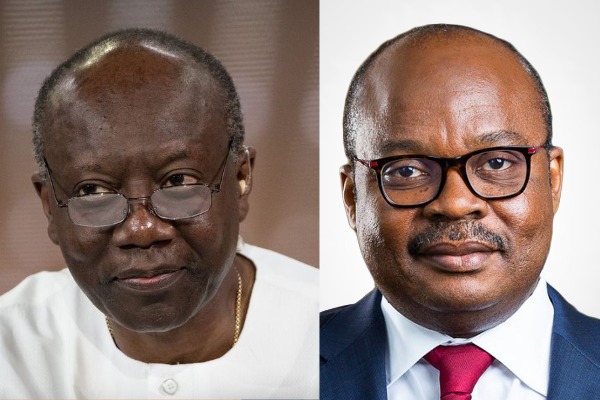The Minority in Parliament has rubbished claims by the government that the economy is recovering after close to a year under an IMF support programme.
This follows assertions by the Governor of the Bank of Ghana, Dr. Ernest Addison, and Finance Minister, Ken Ofori-Atta, that the economy is responding strongly and positively to the bailout agreement with the International Monetary Fund (IMF).
Speaking in Accra at a joint press conference with the IMF, Mr Ofori-Atta expressed optimism about the economy’s outlook, adding that the government is “eager to leverage on this momentum to the very moment when the IMF Executive Board approves the first review in November”.
Additionally, Dr. Ernest Addison noted that non-food inflation has dropped significantly, while food inflation and core inflation have also decreased.
But the Minority insists these claims are false.
According to Minority Spokesperson on Finance, Isaac Adongo, all the key economic indicators like inflation, interest rates, and economic growth have all worsened compared to where they stood last year.
“The data is quite clear that the situation is worse today than it was last year and yet we would want to believe that last year was the worst period; that after the IMF in 2023, it will get better than last year, but the data suggests otherwise.
“What they have sought to do is compare mangoes with pineapples. You can’t take the end-of-year inflation of 2022 and compare it to any of the inflations other than December 2023. That is how you compare apples to apples. Because the inflation that you find during any period, year-on-year is compared to the same period the previous year and we are not in December.”
Mr. Adongo added “The inflation we are seeing today has different season pressures compared to December. In December, we all know the demand pressures. We know Christmas comes, and there is a lot of pressure on the cedi because people are looking for foreign currencies to stock for Christmas, and the inflation as at now has not experienced that, so you cannot compare that to the inflation that will be attained in December.
“Again, you cannot compare food inflation in the period of harvest to food inflation in the period of planting.
“In June 2022, when we were in the worst situation, inflation as at June was 29.8 percent. In 2023 with IMF in the boat and we were expecting things to get better, it worsened to 31.7 percent.”
Adongo, also MP for Bolgatanga Central emphasised that government has put the Ghanaian people under severe economic stress with constant increases in utility tariffs and taxes.
However, these taxes have not lessen the woes of the average Ghanaian.
“How do you look Ghanaians in the face when they are going through this rapid deterioration with their purchasing power and say that there is a turnaround? And we have achieved this (hardship) after paying more taxes as part of the IMF conditions. We have achieved this with electricity bills now tripling.
“In fact, every quarter we experience a close to 30% jump. This is the suffering of Ghanaians. We have achieved this by destroying the value of the Ghanaian through a domestic debt exchange programme which did not even spare poor pensioners.”
ALSO READ:

